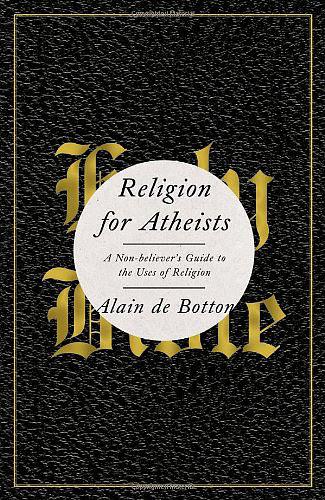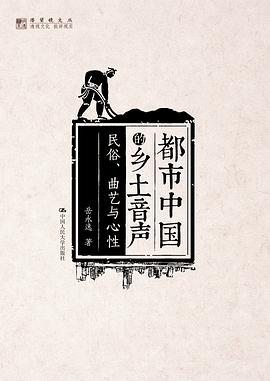Religion for Atheists
内容简介
From the author of The Consolations of Philosophy, a deeply provocative and useful argument about how we can benefit from the wisdom and power of religion—without having to “believe” in any of it.
What if religions aren’t either all true or all nonsense?
The sterile debate between fundamentalist believers and non-believers is finally advanced by Alain de Botton’s astonishing new book, which boldly argues that the supernatural claims of religion are of course entirely false—and yet religion still has some very important things to teach the secular world.
Religion for Atheists suggests that atheists shouldn’t trash religion, they should steal from it—because the world’s religions are packed with good ideas on how we should live in and arrange our societies. In a highly original and readable tone that blends deep respect with total impiety, de Botton (a non-believer himself) proposes that we should look to religions for insights on, among other topics, how to: build a sense of community, make our relationships last, dampen feelings of envy and inadequacy, escape the 24-hour media world, go traveling, get more out of art, and build new businesses geared around our emotional needs.
For too long non-believers have faced a stark choice between either swallowing lots of peculiar doctrines or doing away with a range of consoling and beautiful rituals and ideas. At last, Alain de Botton, the author of the bestselling The Consolations of Philosophy and How Proust Can Change Your Life , has produced a far more interesting and truly helpful alternative.
......(更多)
作者简介
Q&A with Author Alain De Botton
Q: Is it possible to be a good person without religion?
A: The problem of the man without religion is that he forgets. We all know in theory what we should do to be good. The problem is that in practice, we forget. And we forget because the modern secular world always thinks that it is enough to tell someone something once (be good, remember the poor etc.) But all religions disagree here: they insist that if anyone is to stand a chance of remembering anything, they need reminders on a daily, perhaps even hourly basis.
Q: What do you think of the aggressive atheism we have seen in the past few years?
A: I am an atheist, but a gentle one. I don't feel the need to mock anyone who believes. I really disagree with the hard tone of some atheists who approach religion like a silly fairy tale. I am deeply respectful of religion, but I believe none of its supernatural aspects. So my position is perhaps unusual: I am at once very respectful and completely impious.
Q: Are you nostalgic for the deeply religious past?
A: Like many people, of course I feel nostalgic. How is it possible not to feel nostalgic when you look at 15th frescoes or the rituals of an ancient carnival? However, we have to ask: how should I respond to my nostalgia? My thought is that we can use it creatively, as the basis for a rebirth, for the creation of new things, for the creation of things that later generations will feel nostalgic about... So it frustrates me when people say things like, 'Well, they knew how to build in the 15th century, now it is impossible...' Why! Anything is possible. We should not sigh nostalgically over religion, we should learn from them. We should steal from them.
Q: If we were to replace religion with a secular equivalent, who would be our gurus?
A: We don't need a central structure. We are beyond the age of gurus and inspirational leaders. We are in the age of the Wiki structure. This means that it is up to all of us to look at religion and see what bits we can steal and place into the modern world. We might all contribute to the construction of new temples, not the government, but the concerned, interested individual. The salvation of the individual soul remains a serious problem--even when we dismiss the idea of God. In the 20th century, capitalism has really solved (in the rich West) the material problems of a significant portion of mankind. But the spiritual needs are still in chaos, with religion ceasing to answer the need. This is why I wrote my book, to show that there remains a new way: a way of filling the modern world with so many important lessons from religion, and yet not needing to return to any kind of occult spirituality.
Q: Don't you think that, in order to truly appreciate religious music and art, you have to be a believer--or, at least, don't you think that non-believers miss something important in the experience?
A: I am interested in the modern claim that we have now found a way to replace religion: with art. You often hear people say, 'Museums are our new churches'. It's a nice idea, but it's not true, and it's principally not true because of the way that museums are laid out and present art. They prevent anyone from having an emotional relationship with the works on display. They encourage an academic interest, but prevent a more didactic and therapeutic kind of contact. I recommend in my book that even if we don't believe, we learn to use art (even secular art) as a resource for comfort, identification, guidance and edification, very much what religions do with art.
......(更多)
目录
......(更多)
读书文摘
......(更多)






